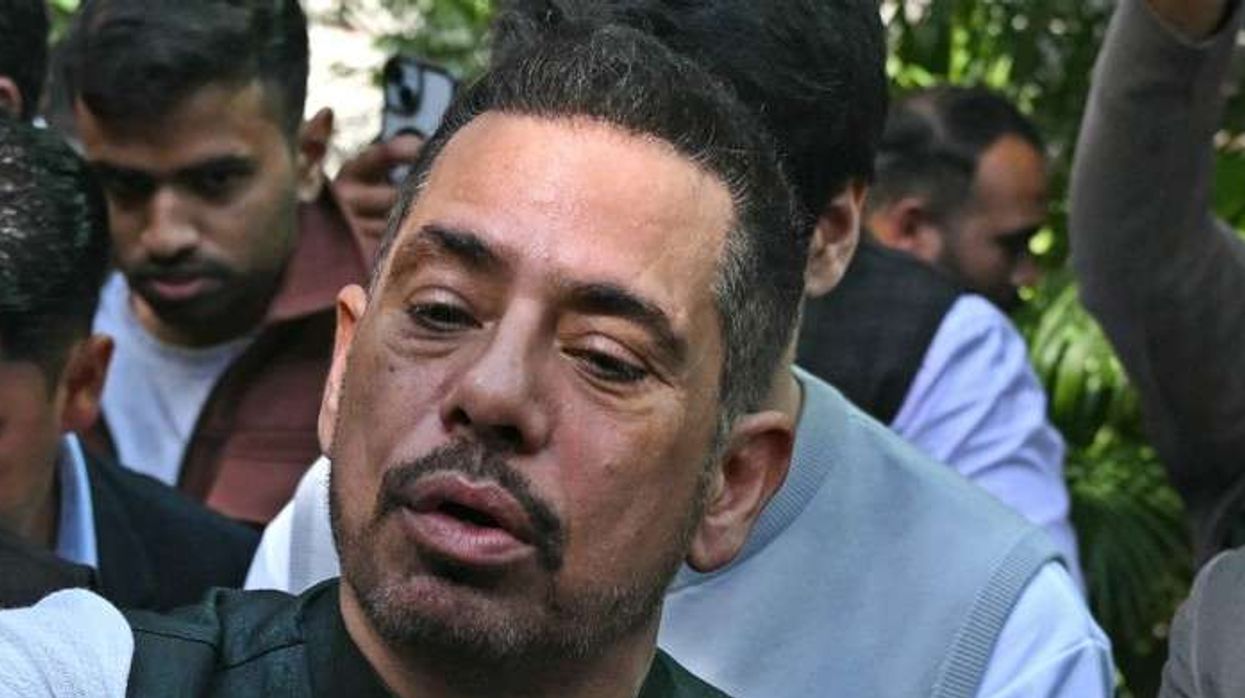Nirav Modi, the fugitive diamond merchant wanted in India to stand trial on fraud and money laundering charges, told a UK court on Thursday (16) that he could be in England for years as some ongoing proceedings prevent his extradition.
The 52-year-old former billionaire appeared for a hearing at Barkingside Magistrates' Court in east London via video link from Thameside prison in relation to legal costs, or fines, amounting to GBP 150,247.00, accrued over his failed extradition appeal proceedings in the London High Court.
Dressed in a pink prison-issue outfit and sporting a moustache, a plump and bald Nirav addressed the three-member magistrates' bench to reveal that he had complied with the previous court direction to pay in GBP 10,000 per month towards the fines.
"I am in prison on remand and remain un-convicted. I am here because of an extradition request from the Indian government,” Nirav told the court, when asked for the reason behind his continued imprisonment.
Questioned if he was aware of a timeframe for the extradition proceedings to be completed, he responded “unfortunately not.”
"To clarify, I was arrested in mid-March for extradition. Some proceedings are still going on which stop my extradition to India… It is very likely I will be in England for a long time, could be three months, six months, could be years,” he said, as the court deliberated upon the length of adjournment.
Taking note of the uncertainty, the case related to the unpaid fines was adjourned to February 8, 2024, when Nirav would again be expected to appear via video link from prison.
Meanwhile, the outstanding fines balance was confirmed as GBP 70,247, which the diamantaire said he intends to carry on paying towards to “reduce the balance" so as "not to be in contempt of court”.
At an earlier hearing listed for the same court in September it emerged that Nirav had been transferred out of HMP (His Majesty's Prison) Wandsworth, one of the UK's largest and most overcrowded prisons, to the privately-run HMP Thameside in south-east London.
The news of the transfer came days after a major manhunt was launched after a terrorist suspect escaped Wandsworth prison in south-west London. The escape had raised serious questions around alleged understaffing and overcrowding at Wandsworth, where Nirav had been lodged since his arrest on an extradition warrant in March 2019.
Last year, Nirav lost his legal battle in the highest UK court against being extradited to India in the estimated USD 2 billion Punjab National Bank (PNB) loan scam case. But his case is now said to be “statute barred,” indicating further pending litigation which could be linked to a confidential asylum application.
At the last procedural hearing in March this year, Barkingside Magistrates' Court had granted his plea to be allowed to pay GBP 10,000 a month using borrowed funds after he told the court of his financial hardships due to his assets being frozen in India.
This week's hearing was scheduled as a review of that previous order.
In December last year, a two-judge bench in the Royal Courts of Justice in London had refused Nirav's application for permission to appeal to the Supreme Court on suicide risk grounds and refused his application to certify a point of law, which concluded his extradition appeal options in the UK courts.
Nirav was arrested on March 19, 2019, on an extradition warrant based on Central Bureau of Investigation (CBI) and Enforcement Directorate (ED) charges against the businessman.
There are three sets of criminal proceedings against the diamantaire in India – the CBI case of fraud on the PNB which caused losses equivalent to over GBP 700 million, the ED case relating to the alleged laundering of the proceeds of that fraud and a third set of criminal proceedings involving alleged interference with evidence and witnesses in the CBI proceedings.
The then Home Secretary, Priti Patel, had ordered Nirav's extradition based on Judge Sam Goozee's Westminster Magistrates' Court ruling in April 2021.
(PTI)













